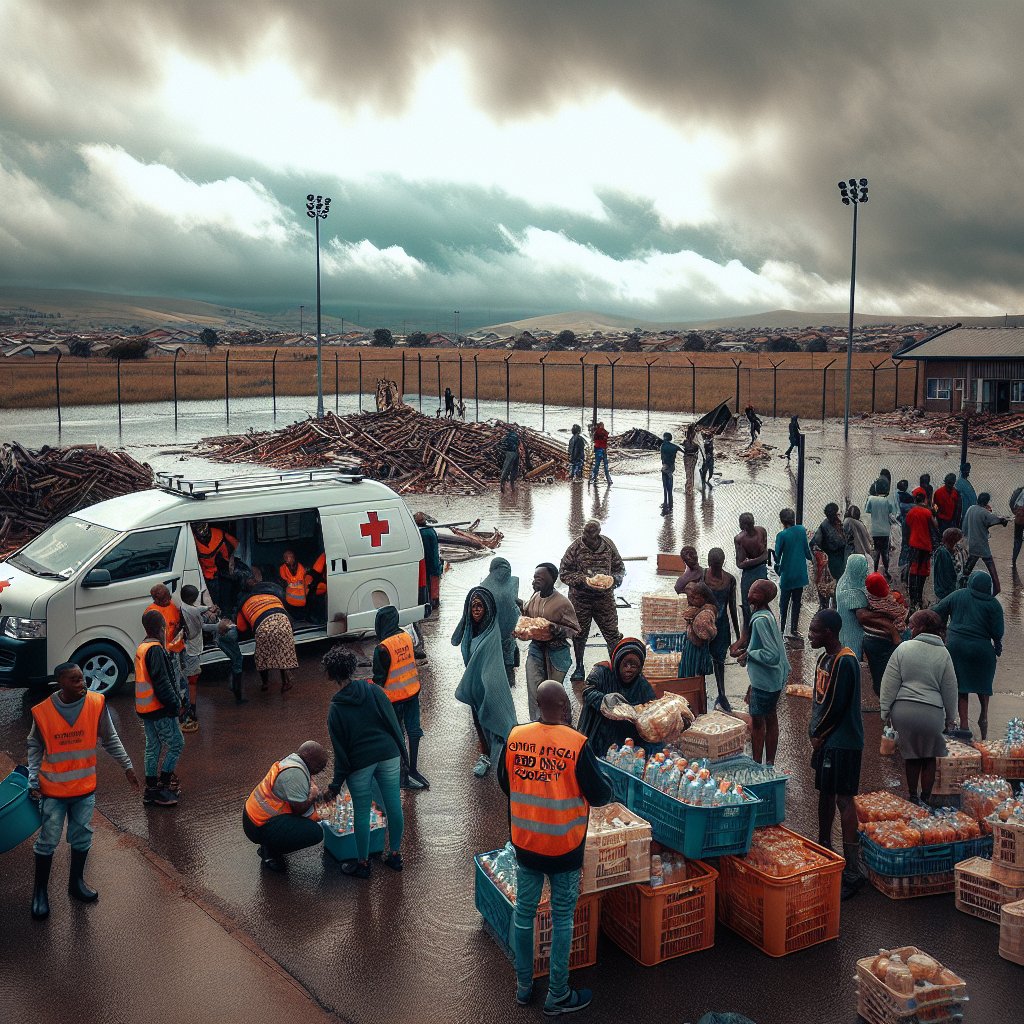Content created by AI
Red Cross Society Extends Aid to Flood-Struck Ladysmith Community
In the wake of a devastating flood that swept through Ladysmith, KwaZulu-Natal, the Red Cross Society has stepped in to offer much-needed relief to the affected community. Heavy rains that pummeled the region led to the emergency evacuation of residents, highlighting the critical need for swift humanitarian assistance.
The flood victims, numbering around 70, including vulnerable infants, found temporary shelter at an indoor sports center situated in the central business district of Ladysmith. But the safety of dry land brought with it a new concern – an urgent shortage of food and basic supplies. Since their evacuation on the grim night of Monday, the displaced individuals faced the stark reality of having been uprooted without provisions.
Rising to the challenge, the South African Red Cross Society, known for its humanitarian outreach during crises, assured the community of its support. Siyabonga Hlatshayo, representing the esteemed organization, underlined the commitment to aid those in dire straits. With clarity and resolve, Hlatshayo stated, “We received a message about the incidents that happened last night due to the rains that affected mostly the town of uMnambithi. We’ve arrived here to provide temporary relief. We came with food and groceries for the people that are displaced.”
The arrival of the Red Cross and its provisions was a beacon of hope amidst the chaos. This gesture of solidarity sheds light on the vital role non-profit organizations play in disaster response and recovery. The society’s rapid deployment underscored the organization's readiness and ability to mobilize resources in times of acute need. Beyond merely responding to the immediate needs, this intervention will likely foster strength and resilience within the community.
The aftermath of such climate-induced calamities often stretches well beyond the event itself, with long-term implications for housing, health, and local economies. In this case, the flood not only displaced families but also disrupted the rhythm of life in Ladysmith, necessitating comprehensive relief efforts. The aid from the Red Cross Society represents the initial step on a long road to recovery for the small town.
As attention turns to rebuilding and rehabilitation, the role of the government, civil organizations, and the community itself in coordinating further relief and reconstruction efforts comes into the spotlight. The ability to rebuild, not just structures, but lives, will be a testament to the resilience and solidarity characteristic of the South African spirit.
In the broader context, the flooding in Ladysmith signals a clear warning about the escalating severity and frequency of extreme weather events due to climate change. Adaptation and mitigation strategies are becoming increasingly imperative as communities across the globe grapple with similar environmental challenges.
The Red Cross Society's involvement in Ladysmith reminds us of the continuous need for preparedness and the importance of humanitarian aid in the face of natural disasters. It highlights the criticality of a collective effort to support the most vulnerable when calamity strikes and reinforces the imperative for sustainable solutions to combat the adverse effects of climate change.





